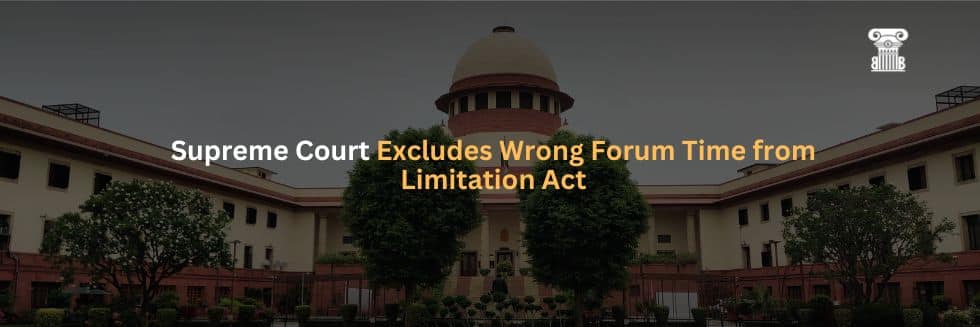The Supreme Court clarified that time spent by a litigant in pursuing bona fide litigation in a wrong forum should be excluded when calculating the limitation period under Section 14(2) of the Limitation Act. In the case of Purni Devi & Anr. v. Babu Ram & Anr., the appellant’s execution application was rejected by the trial court due to time spent in a forum lacking jurisdiction. The Court ruled in favor of the appellant citing Section 14(2) which allows the exclusion of such time. Justices Sanjay Karol and Aravind Kumar emphasized the importance of diligence and good faith in pursuing legal remedies.
CASE DETAILS:
Purni Devi & Anr. v. Babu Ram & Anr.
2024 LiveLaw (SC) 273
Supreme Court
Coram: Justices Sanjay Karol and Aravind Kumar
BACKGROUND:
- The case revolves around the rejection of the appellant’s execution application seeking to enforce a decree issued in their favor by the trial court under Section 182 of the Jammu and Kashmir (J&K) Limitation Act.
- The trial court rejected the application citing it as barred by the limitation act due to the time spent by the appellant in contesting the litigation for execution at the Tehsildar Court which lacked jurisdiction.
- This period from 18.12.2000 to 29.01.2005 was not excluded while calculating the limitation period.
- The High Court upheld the trial court’s decision.
- The appellant then appealed to the Supreme Court arguing that Section 14(2) of the Limitation Act should apply allowing the exclusion of time spent pursuing remedies before the Tehsildar. They contended that Section 14 aims to advance justice and should be interpreted accordingly.
OBSERVATIONS:
The Supreme Court accepted the appellant’s argument ruling that they are entitled to the benefit of Section 14(2) of the Limitation Act which also applies to the State of Jammu and Kashmir. This means that the time spent by the appellant in pursuing litigation in good faith at the tehsildar court would be excluded when calculating the limitation period for filing the execution application of a decree.
Referring to its previous judgment in Consolidated Engg. Enterprises v. Principle Secy, Irrigation Department, the court outlined the conditions that must be met for Section 14 to be applied:
- Both the prior and subsequent proceedings are civil proceedings prosecuted by the same party.
- The prior proceeding was pursued with due diligence and in good faith.
- The failure of the prior proceeding was due to a defect of jurisdiction or a similar cause.
- Both proceedings relate to the same matter in issue.
- Both proceedings are in a court.
Assessing the appellant’s case against these conditions, the court determined that all conditions were met. Therefore, the time spent by the appellant in contesting the application in good faith at the wrong forum is to be excluded when calculating the limitation period before the court has competent jurisdiction.
JUDGEMENT:
The Supreme Court ruled that the time spent by a litigant in contesting bona fide litigation at a wrong forum under the belief that it was appropriate should be excluded when calculating the limitation period under Section 14(2) of the Limitation Act. In a reversal of the High Court’s decision, a bench comprising Justices Sanjay Karol and Aravind Kumar observed that Section 14(2) of the Limitation Act provides an exception where the period of limitation is excluded when proceedings are pursued diligently and in good faith in a court due to a defect of jurisdiction or similar cause is unable to entertain them.
